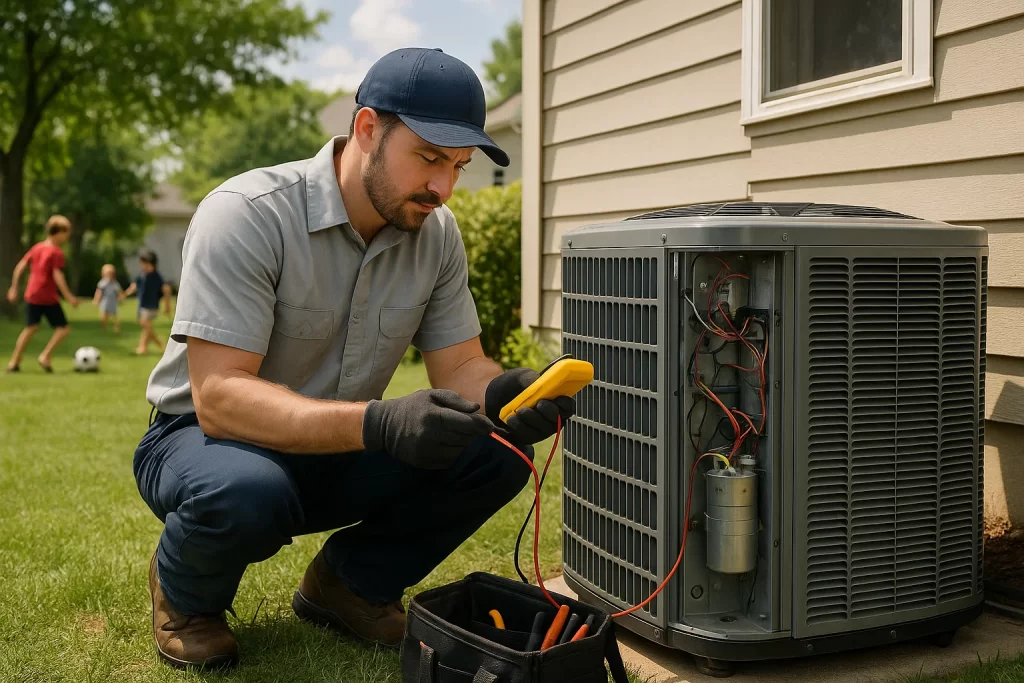When your air conditioner starts acting up, it’s natural to wonder: should you schedule a repair or start shopping for a replacement? The answer depends on several factors, including your system’s age, performance, energy efficiency, and the cost of repairs. Here’s how to weigh your options wisely so you can make the most cost-effective and comfort-driven decision for your home.

1. Consider the Age of Your AC Unit
One of the most significant indicators that it may be time to replace your air conditioner is its age. Most air conditioning systems have a typical lifespan of 10–15 years. If your system is approaching or past this range, it’s likely operating less efficiently and may soon require more frequent repairs.
Tip: If your AC is under 10 years old and has been properly maintained, repair is usually the better option. But if it’s older and repairs are becoming more frequent, replacement may be more cost-effective long-term.
2. Evaluate the Cost of Repairs
A common rule of thumb in the HVAC world is the 50% rule: if the cost to repair your AC is more than 50% of the price of a new system, it’s better to invest in the replacement. Similarly, if you’ve made several repairs in recent years, it’s worth comparing those costs to the price of a new, more reliable unit.
Example: If a major repair costs $1,200 and a new high-efficiency system costs $4,000, it may make more sense to put that money toward an upgrade—especially if the old unit is nearing the end of its expected life.
3. Look at Your Energy Bills
Older air conditioners lose efficiency over time, even if they’re still running. If your energy bills have crept up and your usage hasn’t changed much, your AC may be working harder than it should to keep your home comfortable. Newer models offer significantly improved energy efficiency, which can translate into noticeable monthly savings.
Benefit of Upgrading: Modern AC systems often have higher SEER2 ratings (Seasonal Energy Efficiency Ratio) and use environmentally friendly refrigerants—so you’ll not only save money but also reduce your carbon footprint.
4. Think About Comfort and Performance
Are some rooms in your house warmer than others? Is your system struggling to maintain a consistent temperature? Frequent cycling, strange noises, or excessive humidity indoors may be signs that your current unit is no longer up to the task. Upgrading to a new system can give you more consistent cooling, better humidity control, and even smart thermostat compatibility for more precise comfort.
5. Consider Environmental Regulations and Refrigerant Type
If your AC system still uses R-22 refrigerant (commonly known as Freon), repairs may be more costly or even impossible, as this type of refrigerant has been phased out due to environmental regulations. In such cases, replacing the unit is often the only viable option.
Why Choose a Professional HVAC Assessment
Ultimately, the best way to decide between repair and replacement is to schedule a professional assessment. One of our experienced technicians can inspect your system, identify the root cause of performance issues, and help you weigh the short-term and long-term costs of both options.
Trusted plumbing & HVAC solutions from Charles Chester – Keeping your home running right. Give us a call to schedule your services today!
